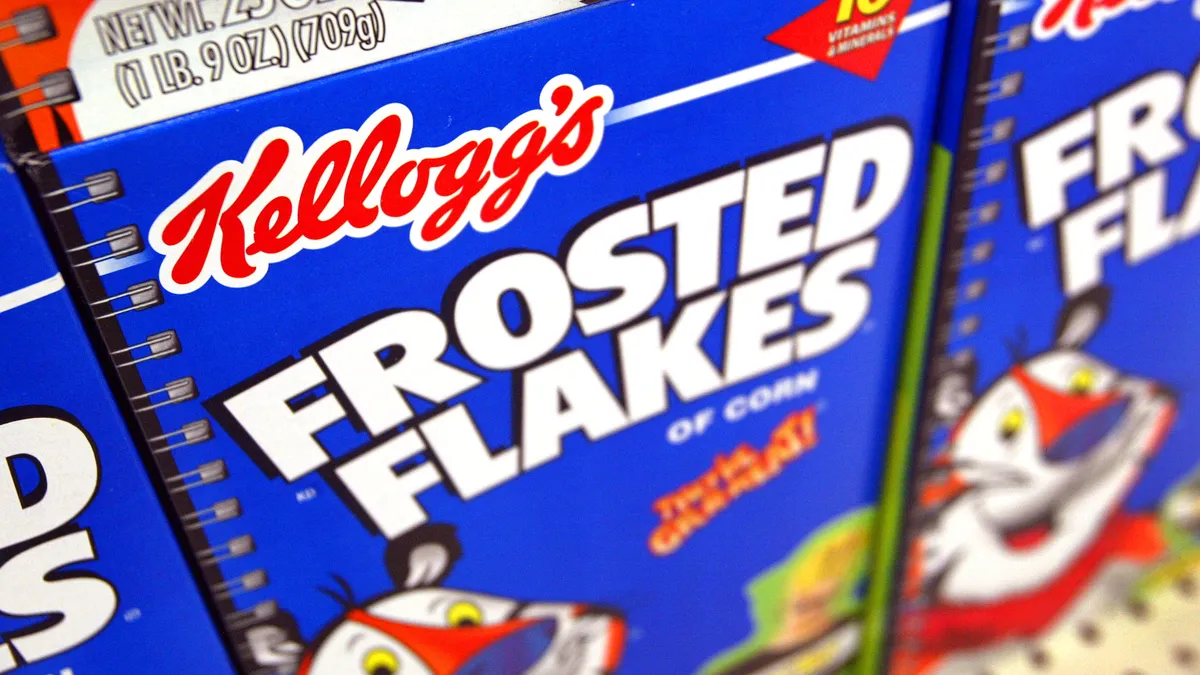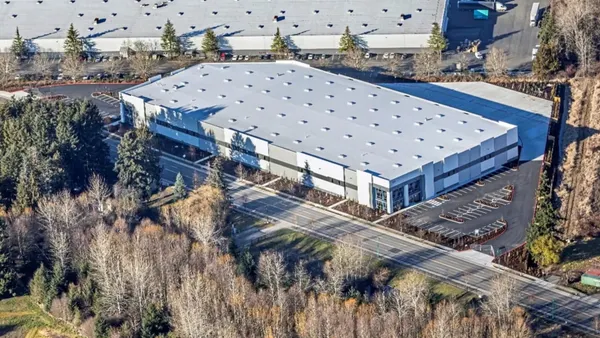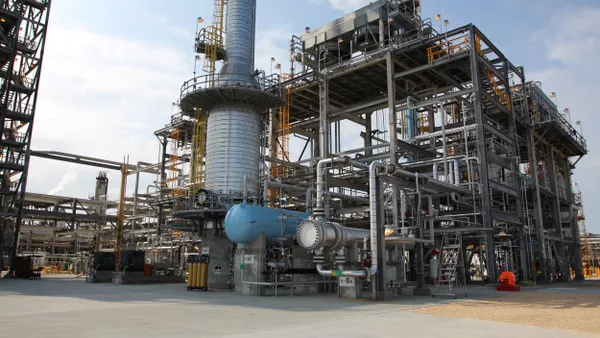Dive Brief:
- Kellogg plans to invest about $45 million to restructure its North American supply chain over the next three years as it seeks to meet demand for its ready-to-eat cereals. The company expects the plan to "help offset cost inflation and reinvest in our brands," according to a new filing with the U.S. Securities and Exchange Commission.
- Other manufacturers have made supply chain shifts during the pandemic. Conagra invested $15 million to keep its inventory up as demand for its packaged foods soared. Kraft Heinz combined disparate elements of its supply chain in order to save $2 billion until 2025, while Coca-Cola and Mondelēz reduced the complexity of their supply chains as market turbulence took hold.
- In a virtual presentation for the Consumer Brands Association this month, Kellogg's North America President Chris Hood highlighted the many supply chain challenges the company has been facing. While demand has been high for its cereals, Kellogg has struggled to keep up with supply because of shortages of factory line workers and truck drivers.
Dive Insight:
Kellogg's decision to restructure its North American supply chain to boost its ready-to-eat cereal business comes as the pandemic continues to have a disruptive effect on food manufacturers' ability to keep up with escalating demand.
The company's plan to shift production to optimal lines across its supply chain network is part of a "robust" new commercial strategy designed to increase its ready-to-eat cereal production and position it for future growth, according to spokesperson Kris Bahner. Kellogg had announced in 2017 plans to streamline its ready-to-eat cereal plants, and this new restructuring plan follows those efforts.
Cereal sales overall boomed during the pandemic, with home consumption estimated to grow 11% in 2020 as people spent more time eating breakfast, according to GlobalData. However, capacity issues and factory worker shortages have led to low supply for a number of cereal manufacturers and brands.
In the CBA presentation, Hood said that the supply chain "dislocations" that food companies are currently facing are almost all caused by a lack of factory workers and truck drivers. However, he was optimistic that with government assistance programs for workers coming to an end soon, Kellogg could regain its footing as more people return to their jobs. He added that the company has work to do to improve the quality of Kellogg's workplace experience, as well as offering more benefits to attract more labor.
In Kellogg's second quarter 2021 earnings call in early August, CFO Amit Banati said that the shortage of truck drivers is "widespread" and was draining money from the company at "much higher rates than what we had expected."
With the overall shortage of labor, it's clear that Kellogg is trying to be strategic in how it focuses its existing workforce. While the company won't close any production facilities, it is setting aside about $4 million for "employee-related costs," including "severance and other termination benefits." As part of this restructuring, the company will be laying off 212 workers at its Battle Creek, Michigan facility by the end of 2023.
In a statement to Food Dive, the company said that it made the move to slash over 200 jobs in Battle Creek — 174 full-time and 38 salaried — after an analysis of its production network found that certain plants are more "cost-effective and better performing than others.
"We must ensure we have the right capacity in the right locations to reduce costs, increase efficiencies and become more competitive," the statement said. Kellogg said it was committed to helping these employees, most of whom made ready-to-eat cereal, and their union "ensure they have outplacement assistance, resources, and support through this transition."
The layoffs come as Kellogg struggles to get enough product on shelves to meet demand. During Kellogg's recent earnings call, CEO Steven Cahillane said that despite a 3% net sales increase during the last quarter, organic net sales of cereal overall declined — notably Frosted Flakes, which made up "more than half" of its loss in share, because of capacity constraints.
While the company has been able to increase capacity abroad somewhat in countries including Poland, supply shortages have prevented Kellogg from being "able to get the level of capacity as quickly as we would want" within North America, Cahillane said. COVID restrictions in Malaysia and a civil rights protest in South Africa also impacted production.
Cahillane added the company is "planning for an ongoing challenging cost environment well into next year," noting that labor shortages and high inflation costs have been "pervasive."














